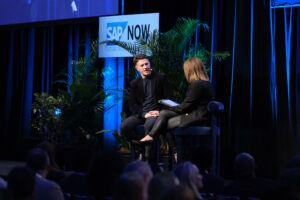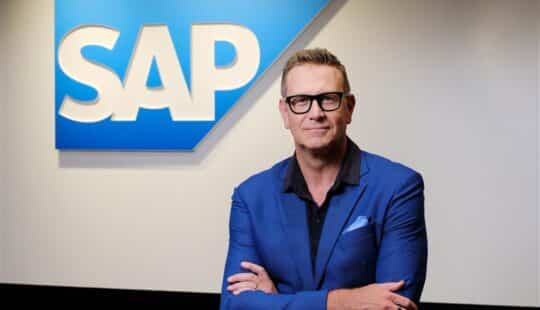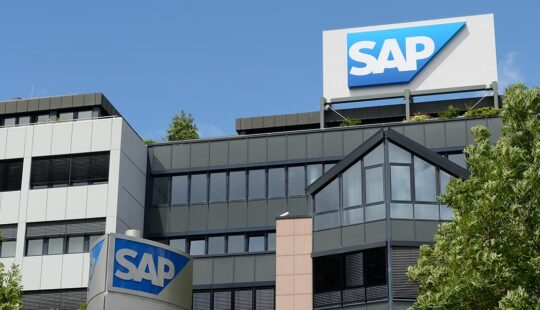Victor Dominello is that most rare of (now former) politicians. He’s known for getting things done. He’s respected on both sides of the aisle. And he’s openly and proudly both knowledgeable and optimistic about technology.
Reflecting on more than a decade of public service in the New South Wales government, acting as Minister in portfolios ranging from Aboriginal Affairs to Finance and Digital to Customer Service, Mr. Dominello has learned a range of lessons transforming the way more than eight million people in the state experience government.
He joined us on-stage to close SAP Now ANZ to share insights, ideas, and experiences from a career that helped create the digital driving license, the first Data Analytics Centre in the country, and the digital check-in and vaccination apps used during the pandemic.
So, what did we learn?

Technology is a mission, not a legacy
“The key is creating a mission culture to do things that will shake the world, that will empower individuals, and that will improve quality of life.”
While data was always close to his heart, it wasn’t even mentioned in Victor Dominello’s 2008 inaugural speech.
But its power became quickly apparent. Victor told the story of an awful outbreak of abuse during his time as Aboriginal Affairs Minister, during which time the task force appointed to find solutions were searching for answers. They were getting reports from the police, hospitals, and elsewhere – all useful, but all containing data after the incidents had occurred.
“I said, ‘this is all great, but where are the lead indicators?’”, said Mr Dominello. “’How can we do something to protect people in the future?’. I asked if we could find out which kids weren’t in school today because truancy could be a lead indicator. And I was told we could get that data in two or three weeks. I felt so gutted.”
“That started my journey for digitising everything I could.”
But digitisation projects can’t be seen as short-term campaigns or focused on your own legacy.
“One of my learnings over the years has been to stop focusing on legacy and what I’m leaving behind. I’d rather be part of a mission that is looking forward,” said Mr Dominello.
“Through technology you can enable the blind to see, the deaf to hear, and the lame to walk. Technology can create modern miracles at pace and scale.”
If we can do all of that in a safe, ethical way then we can have a better future because it’s a tide that lifts all boats.
Every success is built on a platform of failure
“Every success we have had has been built on a failure.”
But not every project is smooth sailing throughout.
In fact, failures are intrinsic to the success of a range of key projects.
“Take the pandemic”, continued Mr Dominello. “We had a service breach during COVID-19. But the result of that issue was that we created ID support, which is now leading the nation.”
“You have to learn from mistakes, because they will come. The key is to fail fast.”
One solution was to constantly pilot new ideas and iterate improvements. The digital drivers license saw five or six pilots in total, for example.
“We pressed the go-live button at 6pm on a Friday, with all of us in a room watching the feedback come in on a screen. It was initially positive, but then we began to see some issues – some people couldn’t register. It turned out we’d overlooked people with double-barrelled surnames and we hadn’t got enough characters available for them. We shut it down at 1am and it was fixed by 9am. We are constantly iterating.”
Digital architecture and the cloud offer a way for government to continue that piece-by-piece improvement.
“Governments need to think about where they invest their money for the highest impact. Instead of bricks and mortar, we need to build digital infrastructure. That will change lives.”
That requires new ways of thinking – and an openness to embrace uncertainty.
“Increasingly governments have to think about what new government looks like. Old government is legacy, band aid solutions.”
“Things like generative AI coming in could be as big a change as the introduction of electricity. This changes everything. If government keeps using old-world thinking, they’ll be left behind.”
The future of digital government will be founded on trust and identity
A modern, digital government isn’t a simple thing to envision, let alone create. But a few things are clear to Mr Dominello.
“The purpose of democracy is to empower the individual. But how do we strengthen that? For me, it’s around trust.”
That means creating a trustworthy society, says Mr Dominello, so people know and can identify what’s true – and what’s not.
That has led to the idea of a vanguard unit to create a trust architecture, bringing together academia and industry to collaborate. Through that sort of cross-sector knowledge-sharing, we can better prompt governments into action.
“The other piece is around digital identity verification,” continued Mr Dominello. “They solve so many things if we get them right. They would significantly improve security, they would significantly improve privacy.”
Then, the difference will be service delivery.
“The big issues are complex and touch on multiple departments.”
“Focusing on service delivery makes government focus on the individual journey rather than the individual going step-by-step between departments. If we look at one journey rather than splitting up the individual into a million journeys, that’s the game-changer.”



